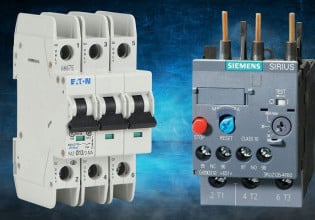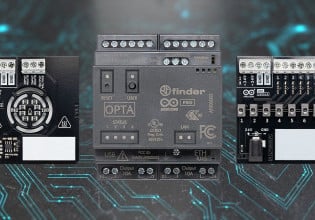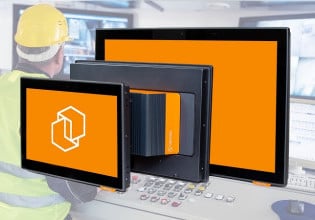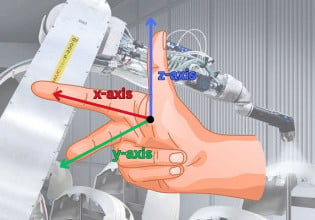Job Questions
- Thread starter mahad83
- Start date
Scroll to continue with content
HiHi All,
I need Questions / Answers or Job Interviews regarding gas turbine control and Control systems like MARK6 and MARK6e.
Thx,
What kind of position is ...
Job position as Controls systems Engineer demand to be an open mindsset person ..
That position will require from one to be self motivated and autoapprentice skills to be able to learn also form others and experienced people mostly, then understand system by system /subsystem the Unit ( GTG and whole plant also )...
There a lot of to say about this wonderful position ...the thing is that you will have 50%to learn by yourself ( at least)
Open OEM manuals documents to begin like P&IDs interconnecting /hardware diagram /control hieracrchy /topology...
Beside these controls engineer must be like a leader on the dedicated equipmments
...and it means a lot !
After been a good controls engineer one can be a Controls Technical Advisor which is superior level in the field....
Ask for training since you will need to get trained prior to get in immersion in a plant!
Any time!
James
mahad83,
I have only ever applied for one job as a operator/technician for a plant with Mark* controls. And my 20-years of experience with the OEM was pretty sufficient for the hiring company, though I was pelted with a lot of questions about my experiences and travels, but not so much about my technical knowledge of the control system or even of the turbine-generator operation. (Which, looking back, was kind of odd--but, the people doing the interviewing were actually clueless about gas turbine-generator operation and wouldn't have known if I was answering a question they might have asked correctly or not. (I use a generator-drive application because that is historically the most common application of a gas turbine, GE-design heavy duty gas turbines, anyway.)
From what I've heard happens in some of the interviews around the world is that the applicant is given a scenario (verbal description) of a problem or issue the plant has experienced at some time (or that the interviewer has experienced at some time)--something that usually resulted in a trip or some kind of damage to the equipment--and is asked to explain how the applicant would troubleshoot the problem.
Or, some operational question is posed and the applicant is asked to explain how the turbine-generator should respond or be operated in response to an alarm or similar situation.
To answer the first type of question, it would be necessary to have a good understanding of the P&ID's (Process & Instrumentation Diagrams, or Piping Schematics as GE calls them) in order to demonstrate good knowledge of the equipment. The really good news is: GE has used the same basic systems and configuration for decades and for many different Frame sizes, too. So, committing one unit's P&ID's to memory is a really good start on being a good technician AND a good operator. A REALLY good start. They are among the simplest P&ID's in the world, and they are relatively easy to understand and follow. The thing that confuses some people is that some systems share piping or fluids (such as L.O. is used for hydraulic systems, and for Trip Oil (sometimes called Control Oil) and so there are little arrows and notes directing the reader to the appropriate other system for more information). Some of the symbols might be a little off-putting or seem difficult to understand, but if you every have any questions you can ask them here on Control.com and we can help.
Also, understanding the very basics of starting (from Start-Check Permissives, to purging, to firing, to warm-up to acceleration, to synchronization), loading and unloading, and a normal shutdown (STOP; breaker opening; fired shutdown; cooldown operation). To be a good technician you also need to be a good operator--understanding what's supposed to happen when, as well as what's not supposed to happen when.
The question I hear people are asked most is: What was your most difficult problem? And, what problem do you see most often? I also hear people being asked how to troubleshoot a 125 VDC battery ground alarm--which is virtually impossible to do while the unit is running UNLESS one is very lucky and/or it is raining a monsoon outside and you walk around and find a JB left open or a piece of conduit used as a ladder rung (which is broken and has come loose from a JB or device). Troubleshooting a 125 VDC battery ground is NOT as difficult as most people make it out to be--it can ONLY be on devices which are directly powered by 125 VDC--and that is primarily contact (discrete) inputs (which is the majority of connections to the turbine control panel), solenoid outputs (including fuel stop valve (trip) solenoids), and the like. BUT, the thing to remember is this: The Mark* CANNOT distinguish between devices connected to the turbine control panel and those which ARE NOT CONNECTED to the turbine control pane--which is quite often fire detection/discharge systems and devices, Emer. L.O. Pump motors, D.C Hydraulic Ratchet Pump motors, Emer. Seal Oil Pump motors, 125 VDC compartment lighting circuits, and the generator control/protection panel. At some sites (usually smaller power plants) the 125 VDC battery also supplies the high voltage switchyard and maybe even some of the Main Step-up Transformer protection circuits. And, last--but not least--the generator breaker close- and trip circuits! The Mark* detects grounds on ANY device powered by the 125 VDC battery--NOT JUST devices powered by the 125 VDC battery that are connected to the turbine control panel.
This also means that things like 4-20 mA transmitters, LVDTs, speed pick-ups, vibration sensors, thermocouples, RTDs, etc., CANNOT be the cause of 125 VDC battery grounds. ONLY devices powered directly by the 125 VDC battery--be that through the Mark* turbine control panel or through the 125 VDC power distribution panel. Full stop. Period. I've walked outside the Control Room to steam injection drain valves which were leaking badly, dripping condensate on the nearly full open position limit switch JB underneath the steam injection drain valve, taken a towel and sopped up all the water in the JB and closed the cover, and in 20 minutes the 125 VDC battery ground alarm disappeared. It's things like this, or fin-fan cooling water module vibration switches left open and filled with rain water. Or junction boxes installed with conduits entering/leaving the top of the JB (instead of the sides or the bottom), and rain water leaks through poorly sealed conduit fittings on the top of the JB onto the terminals below.
Anyway, these are some of the questions I hear get asked. While I have heard of written job exams, I have only heard of it twice--and one was second- or third-hand, not from the person who actually took the test. We have had people write to Control.com asking what the answer for an interview question should have been--but the questions weren't always worded very well when typed into Control.com, and it was never clear if the question was verbally asked or on a written exam.
IF you are a self-starter (meaning you have ambition and are willing to find and page through ALL of the Operations & Maintenance Manuals, making copies of pertinent information and drawings (P&ID's, Device Summarys, Interconnection Diagrams, Connection Diagrams, and then find the generator- and exciter drawings (which have devices connected to the turbine control panel), and make notes on your copies and learn to use Trend Recorder (a VERY valuable and relatively simple tool available in Toolbox/ToolboxST!) you will do well. You can always ask questions here on Control.com--but be warned, sometimes (often, actually) we may ask you for more information--and it won't take long for us to remember if you don't respond to requests for information but keep posting for help.... The quality of the responses you receive from Control.com are directly related to the quality of the information you provide and are willing to provide.
Best of luck!
And, remember: Be careful what you wish for--you just might receive it!
I have only ever applied for one job as a operator/technician for a plant with Mark* controls. And my 20-years of experience with the OEM was pretty sufficient for the hiring company, though I was pelted with a lot of questions about my experiences and travels, but not so much about my technical knowledge of the control system or even of the turbine-generator operation. (Which, looking back, was kind of odd--but, the people doing the interviewing were actually clueless about gas turbine-generator operation and wouldn't have known if I was answering a question they might have asked correctly or not. (I use a generator-drive application because that is historically the most common application of a gas turbine, GE-design heavy duty gas turbines, anyway.)
From what I've heard happens in some of the interviews around the world is that the applicant is given a scenario (verbal description) of a problem or issue the plant has experienced at some time (or that the interviewer has experienced at some time)--something that usually resulted in a trip or some kind of damage to the equipment--and is asked to explain how the applicant would troubleshoot the problem.
Or, some operational question is posed and the applicant is asked to explain how the turbine-generator should respond or be operated in response to an alarm or similar situation.
To answer the first type of question, it would be necessary to have a good understanding of the P&ID's (Process & Instrumentation Diagrams, or Piping Schematics as GE calls them) in order to demonstrate good knowledge of the equipment. The really good news is: GE has used the same basic systems and configuration for decades and for many different Frame sizes, too. So, committing one unit's P&ID's to memory is a really good start on being a good technician AND a good operator. A REALLY good start. They are among the simplest P&ID's in the world, and they are relatively easy to understand and follow. The thing that confuses some people is that some systems share piping or fluids (such as L.O. is used for hydraulic systems, and for Trip Oil (sometimes called Control Oil) and so there are little arrows and notes directing the reader to the appropriate other system for more information). Some of the symbols might be a little off-putting or seem difficult to understand, but if you every have any questions you can ask them here on Control.com and we can help.
Also, understanding the very basics of starting (from Start-Check Permissives, to purging, to firing, to warm-up to acceleration, to synchronization), loading and unloading, and a normal shutdown (STOP; breaker opening; fired shutdown; cooldown operation). To be a good technician you also need to be a good operator--understanding what's supposed to happen when, as well as what's not supposed to happen when.
The question I hear people are asked most is: What was your most difficult problem? And, what problem do you see most often? I also hear people being asked how to troubleshoot a 125 VDC battery ground alarm--which is virtually impossible to do while the unit is running UNLESS one is very lucky and/or it is raining a monsoon outside and you walk around and find a JB left open or a piece of conduit used as a ladder rung (which is broken and has come loose from a JB or device). Troubleshooting a 125 VDC battery ground is NOT as difficult as most people make it out to be--it can ONLY be on devices which are directly powered by 125 VDC--and that is primarily contact (discrete) inputs (which is the majority of connections to the turbine control panel), solenoid outputs (including fuel stop valve (trip) solenoids), and the like. BUT, the thing to remember is this: The Mark* CANNOT distinguish between devices connected to the turbine control panel and those which ARE NOT CONNECTED to the turbine control pane--which is quite often fire detection/discharge systems and devices, Emer. L.O. Pump motors, D.C Hydraulic Ratchet Pump motors, Emer. Seal Oil Pump motors, 125 VDC compartment lighting circuits, and the generator control/protection panel. At some sites (usually smaller power plants) the 125 VDC battery also supplies the high voltage switchyard and maybe even some of the Main Step-up Transformer protection circuits. And, last--but not least--the generator breaker close- and trip circuits! The Mark* detects grounds on ANY device powered by the 125 VDC battery--NOT JUST devices powered by the 125 VDC battery that are connected to the turbine control panel.
This also means that things like 4-20 mA transmitters, LVDTs, speed pick-ups, vibration sensors, thermocouples, RTDs, etc., CANNOT be the cause of 125 VDC battery grounds. ONLY devices powered directly by the 125 VDC battery--be that through the Mark* turbine control panel or through the 125 VDC power distribution panel. Full stop. Period. I've walked outside the Control Room to steam injection drain valves which were leaking badly, dripping condensate on the nearly full open position limit switch JB underneath the steam injection drain valve, taken a towel and sopped up all the water in the JB and closed the cover, and in 20 minutes the 125 VDC battery ground alarm disappeared. It's things like this, or fin-fan cooling water module vibration switches left open and filled with rain water. Or junction boxes installed with conduits entering/leaving the top of the JB (instead of the sides or the bottom), and rain water leaks through poorly sealed conduit fittings on the top of the JB onto the terminals below.
Anyway, these are some of the questions I hear get asked. While I have heard of written job exams, I have only heard of it twice--and one was second- or third-hand, not from the person who actually took the test. We have had people write to Control.com asking what the answer for an interview question should have been--but the questions weren't always worded very well when typed into Control.com, and it was never clear if the question was verbally asked or on a written exam.
IF you are a self-starter (meaning you have ambition and are willing to find and page through ALL of the Operations & Maintenance Manuals, making copies of pertinent information and drawings (P&ID's, Device Summarys, Interconnection Diagrams, Connection Diagrams, and then find the generator- and exciter drawings (which have devices connected to the turbine control panel), and make notes on your copies and learn to use Trend Recorder (a VERY valuable and relatively simple tool available in Toolbox/ToolboxST!) you will do well. You can always ask questions here on Control.com--but be warned, sometimes (often, actually) we may ask you for more information--and it won't take long for us to remember if you don't respond to requests for information but keep posting for help.... The quality of the responses you receive from Control.com are directly related to the quality of the information you provide and are willing to provide.
Best of luck!
And, remember: Be careful what you wish for--you just might receive it!






